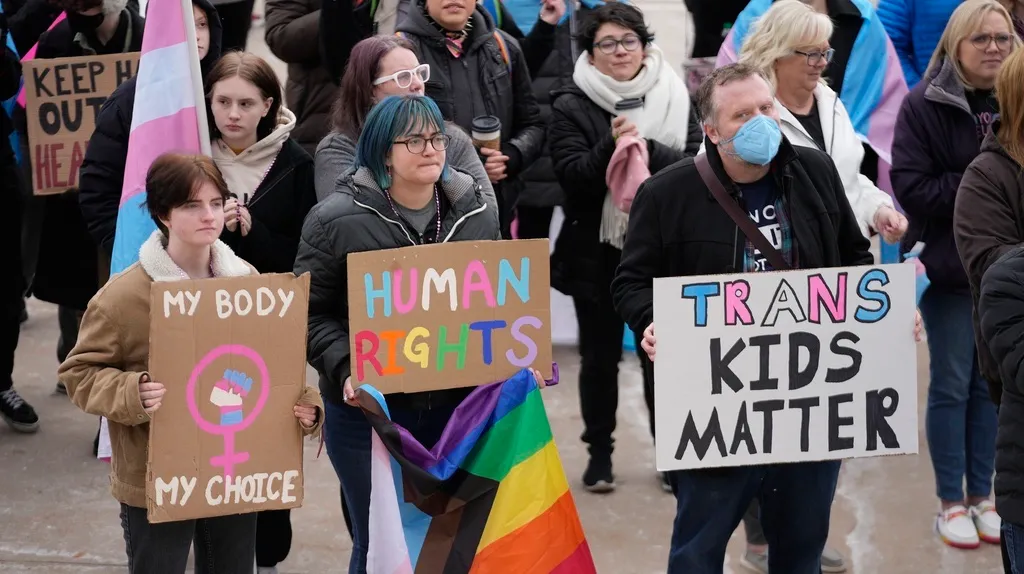March 19, 2011
SPLC and the BSO Present Bullied: Local Law Enforcement Proud to be Involved
Kevin Mark Kline READ TIME: 4 MIN.
Bullied, a film produced by the Southern Poverty Law Center, tells the story of Jamie Nabozny who made international headlines when he sued his school district due to harassment from students, which was ignored by the school board. The documentary opens with Nabozny telling an endearing childhood story about being obsessed with a gay uncle's car. He told his grandmother he was gay, at seven, to which she replied, "You don't have to be gay to have a Cadillac."
The sweet story quickly gives way to the hard reality of Nabozny's Wisconsin upbringing. Nabozny told his parents early on that he was gay. His father was uncomfortable at first.
"Eventually my harassment became the bigger issue in our lives, bigger than my sexuality," Nabozny stated. "As a parent, his job was to protect me."
Nabozny's job, it seemed, was to hide. He hid in the mornings before class, then avoided torment in the halls by running from one room to the other. At home, depressed, he shut himself up in his room. Eventually, it hurt too much, both physically and emotionally. Hopeless, he tried to overdose on pills.
His mother promptly took him to have his stomach pumped, although the school was so not helpful. The principal, administration, and mothers of the bullies, were unanimous in their opinion, "boys will be boys" and Jamie brought it on himself.
"Not one of the bullies was punished," says narrator Jane Lynch ominously.
After running away to Minneapolis his parents eventually found him. They brought him home, after promising to home-school. Unfortunately, that arrangement was impossible.
"In Wisconsin it's a criminal act to not send your child to school," Nabozny told SFGN. "So I had to go back to the public school. The other choices were a Catholic and Assemblies of God high school. They wouldn't enroll an openly gay student."
The public high school in Ashland re-enrolled but would not accept Jamie. He was only briefly in school before harassment was again in full swing. Ultimately, Nabozny went back to Minneapolis, lived with gay foster families, and finished high school there.
"They were still parenting," Nabozny said lightheartedly of his parents. "They were constantly on the phone with the gay families I lived with, making sure I was OK."
A counselor in Minneapolis suggested he take on the school in a lawsuit and was surprised to learn his parents supported the idea. Initially the courts refused to hear the case. Yet, Nabozny ultimately triumphed with the assistance of Lambda Legal. It marked the first time a child sued a school district because of his sexuality.
Given the monumental importance of the case many advocates for the LGBT-community cite the case as a catalyst for social change including the recent repeal of DADT. It seemed apropos to ask if he feels this is a justified description. Or, was he simply in the right place at the right time? After all trial dates roughly coincide with Ellen coming out on her TV show and XY, a magazine for gay teens.
"I think it's a combination of the two, because it was a case about a gay child," said Nabozny. "You can say gay this and gay that but you can't say a child deserves to be tormented because of their sexual orientation. It opened people's eyes because this was a small town - not a suburb of San Francisco or New York City. People realized, we're everywhere."
Nabozny gave up a career with Wells Fargo last year because of work on the film and with SPLC. Since then he has been a full-time speaker, appearing around the country, discussing his experiences across a broad spectrum of society. This year he will speak at the FDIC diversity summit.
"Today the amount of gay role models on TV and the Internet is amazing," he said. "The expectations of these kids, is much greater than of my generation. My biggest disappointment is that it's 2011 and they still have not protected people in the workplace by passing ENDA."
Nabozny was pleased, however, to learn that the Broward Sheriff's Office had a part in the making of the film. Commander Rick Wierzbicki worked to ensure that the Sheriff's Office would contribute to Bullied. When Wierzbicki was appointed almost three years ago as Commander of the then newly-formed BSO Hate Crimes/Anti-Bias Task Force by Sheriff Lamberti, he knew he must partner with the Southern Poverty Law Center.
"We would be dependent on their intelligence files for information on domestic extremist and hate groups in Broward County and throughout the rest of Florida, as we have the third highest amount of hate organization in the United States," said Wierzbicki who with Sheriff Lamberti has worked to improve the lives dicriminated persons both locally and on the national level. "When I informed Sheriff Lamberti about the offer to help fund Bullied, he instructed me to ask the Sheriffs Foundation of Broward County for a monetary contribution that we could send to the SPLC for financial support. The Board unanimously voted to give a contribution in the name of Sheriff Lamberti and the BSO."
The film will be shown at Cinema Paradiso in Fort Lauderdale, on Wednesday, March 23, at 7 p.m. SPLC, Nabozny, and Commander Wierzbicki want to let educators and school districts know that teaching kits and copies of the film are complementary.
Please visit Sheriff.org/antibullying and FLIFF.com/CinemaParadiso.asp for more information.







